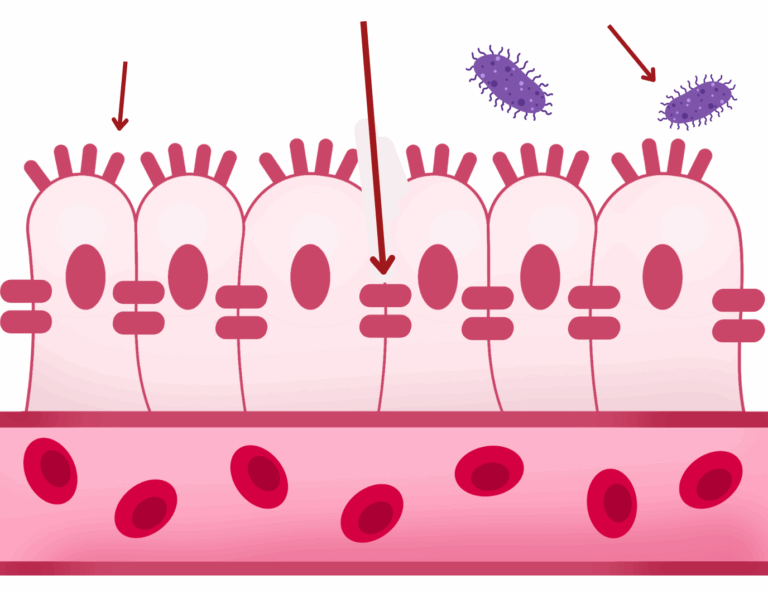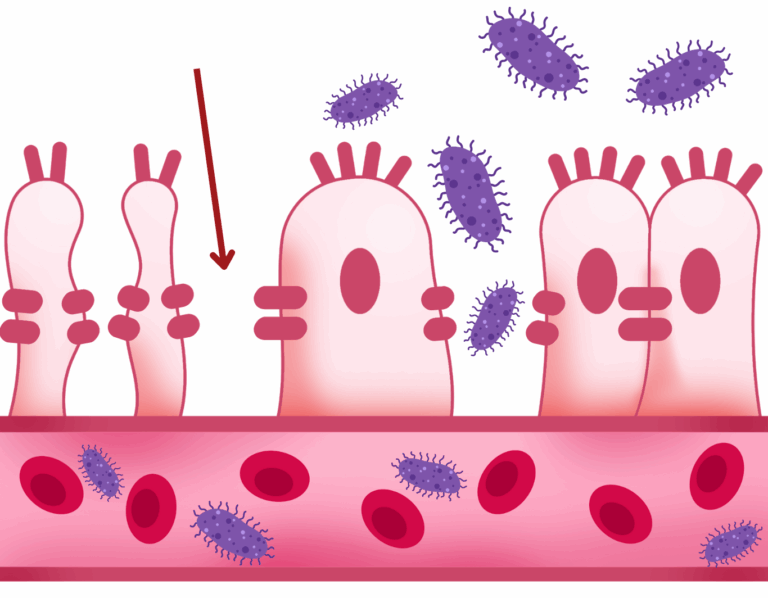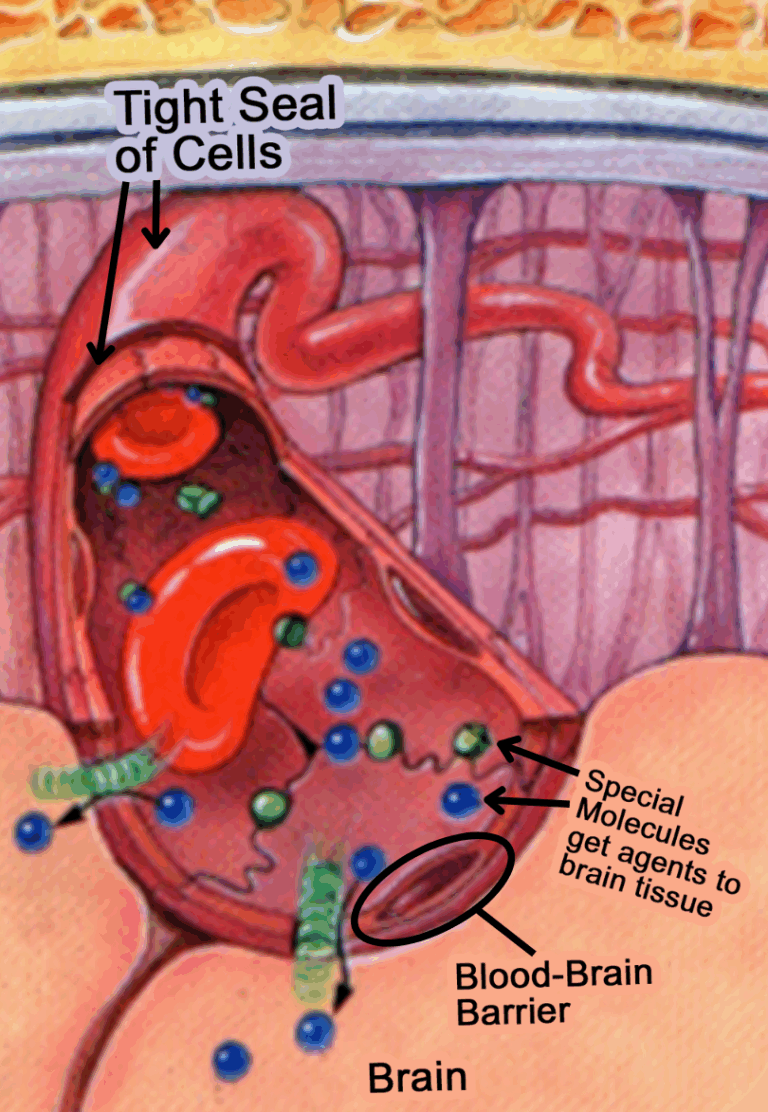Leaky Gut, Inflammation, & Hypophosphatasia
Hypophosphatasia has been known to cause increased inflammation, which is a known cause of pain. Generally speaking, anything that lowers systemic inflammation could help with pain management, and could benefit someone living with HPP.
You may have heard of leaky gut, which is thought to be a major contributor of inflammation in the body. Dysbiosis, or bacterial imbalance, is a leading cause of the leaky gut syndrome. This can be caused by poor diet, prolonged exposure to stress or toxin overload. The lining of the digestive tract becomes more permeable, or porous, and allows microbes, toxins, and bacteria to “leak” into the bloodstream. These pathogens then may trigger a response in the immune system, resulting in inflammation and initiation of autoimmune diseases including inflammatory bowel disease, lupus, and celiac disease
Enterocyte Cells
Tight Junctions
Microorganisms & Toxins

Normal Blood Flow
Faulty Junctions

Abnormal Immune Reaction

 Blood Brain Barrier
Blood Brain Barrier
Gut issues are not always obvious. You may be experiencing food sensitivity related inflammation but may not have any outward symptoms of digestive dysfunction. The good news is that gut health can be restored as the gut microbiome is very responsive to positive environmental changes. This often requires eliminating foods that trigger inflammation. In some cases, you may need to work with a nutritionist or your doctor and consider adding supplements that can aid in digestion and brain function. Before taking any supplements, be sure to refer to the resource Food For Thought: Dietary Guidelines for Patients with Hypophosphatasia.
Research has shown there is a link between the microorganisms that colonize the digestive tract (known as the gut microbiota) and the central nervous system. Scientists have speculated there may be a connection between a leaky gut and a leaky brain. In other words, leaky gut may be one underlying cause of illnesses involving disruptions to the blood-brain barrier. As such, CNS dysfunction could potentially result from disruption in the gut microbiota but more research needs to be done to better understand this connection

 What Can Be Done to Help Leaky Gut?
What Can Be Done to Help Leaky Gut?
When an individual has leaky gut, inflammation is a concern; the less inflammation in the body the less pain an individual will experience. Inflammation is involved in a wide range of conditions and diseases, including some of the most common chronic conditions and leading causes of deaths worldwide. We may not be able to control genetic disorders such as HPP, but we do have some control over numerous non-genetic diseases. By making proper food choices, and maintaining a healthy gut microbiome, we may be able to help minimize inflammation and pain, strengthen the immune system and reduce risk for some chronic diseases like diabetes, certain cancers, inflammatory bowel disease, liver disease, and cardiovascular disease. Keeping a healthy gut is a good step in minimizing inflammatory impact and can help with pain management.
Top Foods to Avoid
Please note, this discussion guide is intended to help prepare for potential scenarios and not a script. Feel free to adapt talking points to your own style
 Sugar
Sugar
Studies show sugar increases pro-inflammatory messengers called cytokines in the digestive tract, contributing to permeability and inflammation
 Soy
Soy
Soy has also been shown to have inflammatory effects in some people.
 Peanuts
Peanuts
Peanuts are actually not nuts but legumes (inflammatory if not soaked to rid the lectins), and can produce mycotoxins, which are toxic compounds that are naturally produced by certain types of molds (fungi). These mycotoxins also contribute to inflammation, gut dysbiosis and can create a histamine reaction in the body. This is supported by Zinocker Nutrients 2018.
 Dairy
Dairy
Dairy has been shown to have a pro-inflammatory effect in some studies; however, other studies have shown dairy products and milk to have an anti-inflammatory effect. The jury is still out and more study is needed. Meanwhile, some people don’t produce enough of an enzyme needed to properly digest and metabolize lactose, the sugar in milk. If you have problems with dairy, focus on non-dairy options or on fermented products, unsweetened yogurt and kefir (fermented milk with good bacteria)

